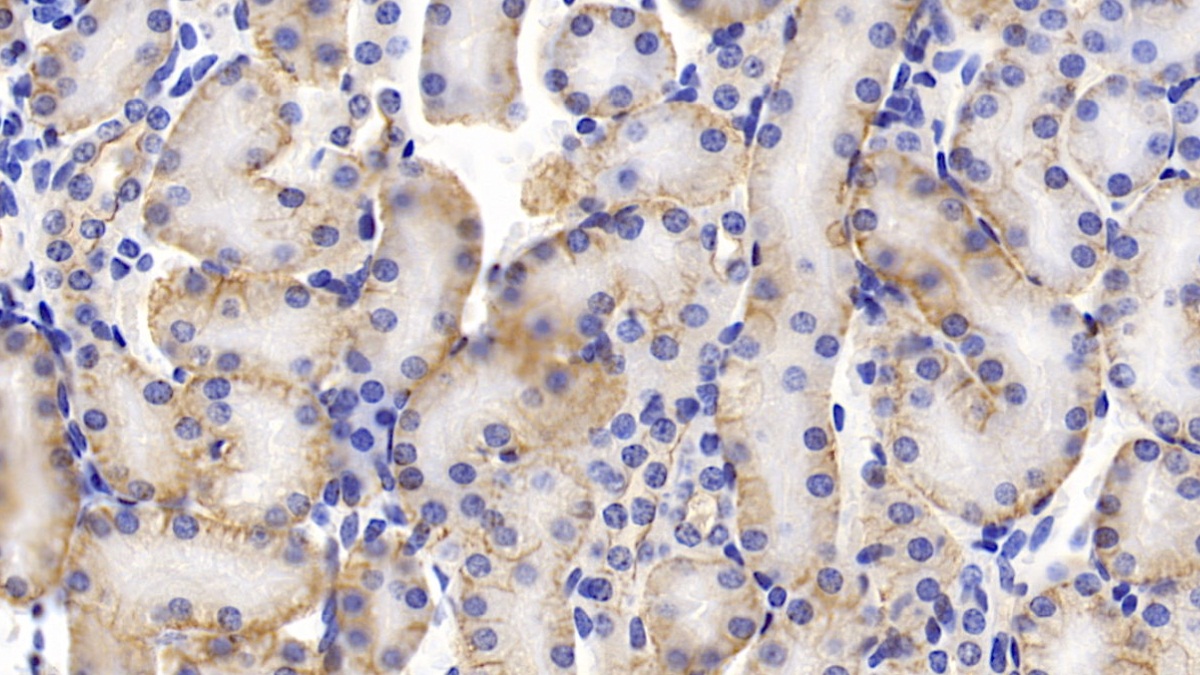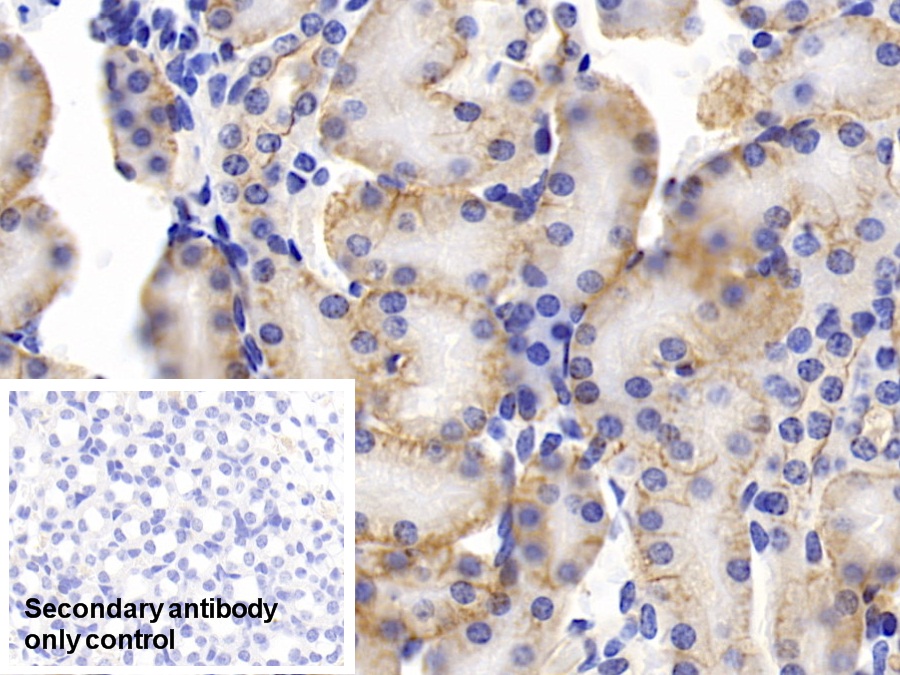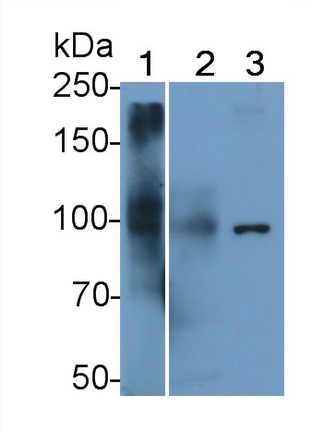Polyclonal Antibody to Prominin 1 (PROM1) 

CD133; PROML1; Macular Dystrophy,Retinal 2; Stargardt Disease 4(Autosomal Dominant); Prominin-like protein 1; Antigen AC133
Overview
Properties
- Product No.PAB516Mu01
- Organism SpeciesMus musculus (Mouse) Same name, Different species.
- ApplicationsWB; IHC
If the antibody is used in flow cytometry, please check FCM antibodies.
Research use only - DownloadInstruction Manual
- CategoryCD & Adhesion moleculeTumor immunityInfection immunityDevelopmental science
- SourcePolyclonal antibody preparation, Host Rabbit
- Ig Type IgG, Potency n/a
- PurificationAntigen-specific affinity chromatography followed by Protein A affinity chromatography
- LabelNone
- Immunogen RPB516Mu01-Recombinant Prominin 1 (PROM1)
- Buffer FormulationPBS, pH7.4, containing 0.02% NaN3, 50% glycerol.
- TraitsLiquid, Concentration 0.49mg/mL
Sign into your account
Share a new citation as an author
Upload your experimental result
Review

Contact us
Please fill in the blank.
Specifity
The antibody is a rabbit polyclonal antibody raised against PROM1. It has been selected for its ability to recognize PROM1 in immunohistochemical staining and western blotting.
Usage
Western blotting: 0.01-2µg/mL;
Immunohistochemistry: 5-20µg/mL;
Optimal working dilutions must be determined by end user.
Storage
Store at 4°C for frequent use. Stored at -20°C in a manual defrost freezer for two year without detectable loss of activity. Avoid repeated freeze-thaw cycles.
Stability
The thermal stability is described by the loss rate. The loss rate was determined by accelerated thermal degradation test, that is, incubate the protein at 37°C for 48h, and no obvious degradation and precipitation were observed. The loss rate is less than 5% within the expiration date under appropriate storage condition.
Organism Species More: Homo sapiens (Human)Giveaways
Increment services
-
 Antibody Labeling Customized Service
Antibody Labeling Customized Service
-
 Protein A/G Purification Column
Protein A/G Purification Column
-
 Staining Solution for Cells and Tissue
Staining Solution for Cells and Tissue
-
 Positive Control for Antibody
Positive Control for Antibody
-
 Tissue/Sections Customized Service
Tissue/Sections Customized Service
-
 Phosphorylated Antibody Customized Service
Phosphorylated Antibody Customized Service
-
 Western Blot (WB) Experiment Service
Western Blot (WB) Experiment Service
-
 Immunohistochemistry (IHC) Experiment Service
Immunohistochemistry (IHC) Experiment Service
-
 Immunocytochemistry (ICC) Experiment Service
Immunocytochemistry (ICC) Experiment Service
-
 Flow Cytometry (FCM) Experiment Service
Flow Cytometry (FCM) Experiment Service
-
 Immunoprecipitation (IP) Experiment Service
Immunoprecipitation (IP) Experiment Service
-
 Immunofluorescence (IF) Experiment Service
Immunofluorescence (IF) Experiment Service
-
 Buffer
Buffer
-
 DAB Chromogen Kit
DAB Chromogen Kit
-
 SABC Kit
SABC Kit
-
 Long-arm Biotin Labeling Kit
Long-arm Biotin Labeling Kit
-
 Real Time PCR Experimental Service
Real Time PCR Experimental Service
Citations
- Clinical and biological significance of stem-like CD133+ CXCR4+ cells in esophageal squamous cell carcinomaPubMed: 26092504
- Hyperglycemia Alters the Protein Levels of Prominin-1 and VEGFA in the Retina of Albino Ratspubmed:29076766
- Matter, energy and information network of graphene-peptide-based fluorescent sensing system for molecular logic computing, detection and imaging of cancer stem?…Pubmed: 30785136
- Impact of Hydrogel Elasticity and Adherence on Osteosarcoma Cells and OsteoblastsPubmed: 30838809
- Prognostic value of stem cell markers in esophageal and esophagogastric junction cancer: a meta-analysisPubmed: 32368307
- Expression of CD44 and CD133 markers in regional metastases from breast cancer.
- Antibody CD133 Biofunctionalization of Ammonium Acryloyldimethyltaurate and Vinylpyrrolidone Co-Polymer-Based Coating of the Vascular Implants33321837








